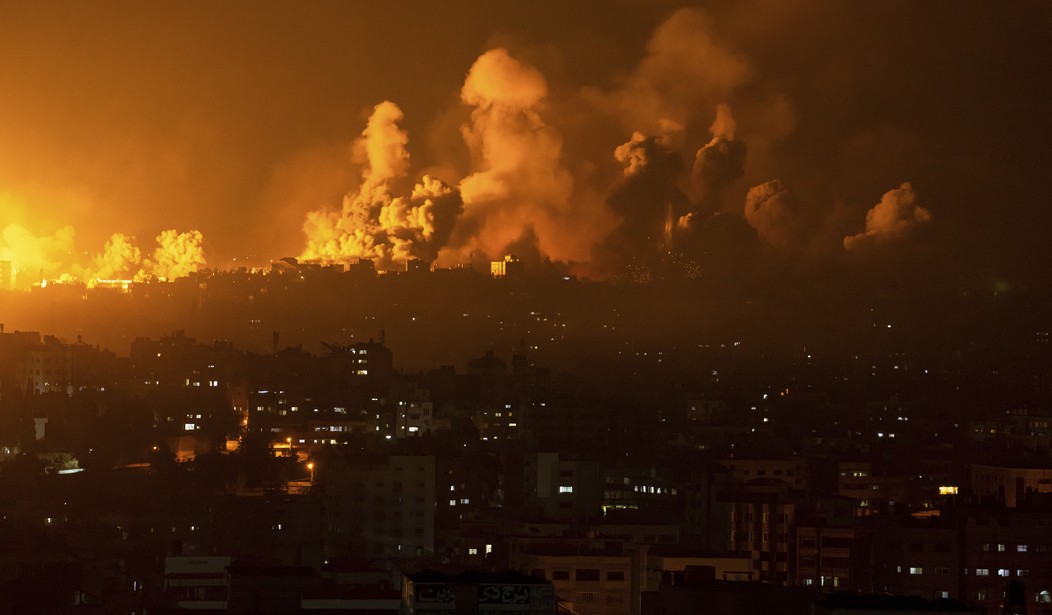An interesting question comes to us from Jimmy Chan at Issues and Insights this week. Why couldn’t Gaza be another Hong Kong? He takes the reader through a condensed history of both places dating back to the early part of the 20th century, finding a surprising number of similarities in their origin stories. At one point, in terms of both physical size and population, Hong Kong and Gaza shared much in common, but the paths they took and the outcomes they achieved couldn’t be more different. Even while under threat from the potential menace of Beijing, Hong Kong is one of the preeminent economic powerhouses of the world, with a high standard of living and the lowest infant mortality rate in the world. Gaza is the opposite and already was before the current war. Massive unemployment and desperate living conditions define the Gaza Strip and nearly 3 out of every 100 babies born there do not live past infancy. So why are they so different? Jimmy argues that Hong Kong chose free markets and a policy of peacefully coexisting with a dominating neighbor, but Gaza was consumed with a burning hatred of its neighbor, setting them on a path to catastrophe.
Hong Kong, not long ago a fishing village, a “barren island” with no natural resources, became an economic powerhouse with one of the world’s highest standards of living. Meanwhile, the Gaza Strip has been described as a hellhole. There’s a reason the two are so different: The former chose to pursue prosperity while peacefully coexisting for a half-century next to a territory-acquisitive communist regime, the latter chose to consume itself with hatred toward its neighbor.
Modern Hong Kong began to take shape in the 1950s. It now has one of the highest concentrations of wealth in the world. But it wasn’t always a paradise teeming with human capital. At the end of World War II, the population was only 600,000, about a third of what it had been before the war due to food scarcity and the flight of refugees.
While I may not agree with all of the conclusions, it’s a fascinating historical analysis and definitely worth your time to read. And Jimmy does make some excellent points about the commonalities between Gaza and Hong Kong’s origins in the modern era. Yet at the same time, it’s worth noting that modern Hong Kong in the 1930s and 1940s originally struggled to establish itself as a capitalist haven despite being in a relatively calm (for the period) part of the world. And they have remained largely (though not entirely) unmolested by hostile forces since then, acquiring many powerful allies along the way.
By contrast, Gaza, along with Israel, was born into a world of fire. The Gaza strip seemed almost destined for failure from the beginning. The first Arab-Israeli war broke out in 1948 only hours after Israel was declared an independent nation. And right from the beginning, as Jimmy correctly points out, they were dedicated to the proposition of erasing Israel from the map and exterminating the Jewish people. The strip was occupied a couple of times in the following decades, but when Israel finally withdrew fully from the strip in 2006 in an effort to leave the Palestinians to govern themselves, they immediately voted to make Hamas their government and continued to attack Israel however they could.
In that sense, the Palestinians turned their backs on any prospects of a peaceful relationship with their neighbor, so it’s not unfair to say that they’ve brought much of their current misery on themselves. But if we’re being brutally honest, the Palestinians never really had an opportunity to make peace with Israel even if they had wanted to. Returning to that fiery birth I mentioned above, the Palestinians were and are Arabs. The Arab world was literally and figuratively at war with the Jews of Israel. If the residents of Gaza had been seen as “siding with the enemy,” their own neighbors would likely have wiped them out or at least refused to show them any support.
The people of Hong Kong adopted a world view based on a figurative battle to establish economic dominance and picked their fights in the fields of capitalism. The Palestinians in Gaza were born into a holy war and they embraced that role with a fervor. So to answer Jimmy Chan’s question, I suppose I would argue that under very different circumstances, Gaza could have set off on a path to resemble Hong Kong many decades ago. But that ship has long since sailed. We are where we are and I’ve yet to hear anyone propose a viable, long-term solution. Israel has little choice now but to destroy Hamas and hope that the passions of the remaining Palestinians can be tamed by a fundamental fear of extinction.








Join the conversation as a VIP Member